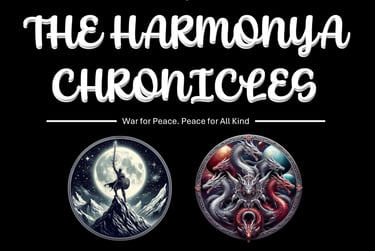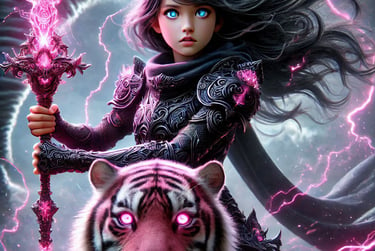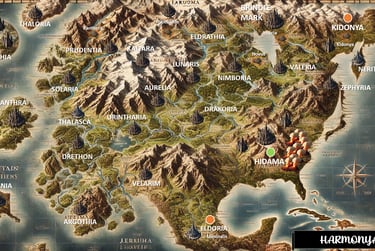Rites of Hidama Song - Fantasy Soundtrack from Book 4 Battle
Haunting "Rites of Hidama" song from Kidonya battle in Book 4. Fantasy music explores sacrifice, unity & war for peace. Listen on 125+ platforms worldwide.
The Harmonya Team
5/30/20255 min read
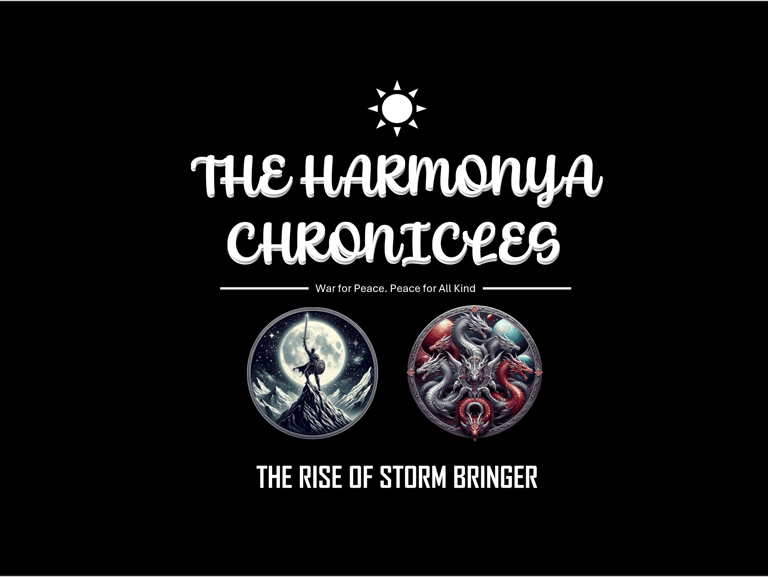

More Than Words on a Page: The Haunting Melody That Brought a Fantasy World to Life
Have you ever heard a song that just stops you in your tracks? A melody that seems to carry a weight you can’t quite explain, with lyrics that feel like a faded memory from a life you never lived? Right now, a song is doing just that, quietly climbing charts and filling social media feeds. It’s called "The Rites of Hidama," and it’s not from a famous pop star or a blockbuster movie. Its origin is far more mysterious and, for many, far more magical. It comes from a book.
This soul-haunting tune has emerged from the pages of one of the most talked-about fantasy books of the year, Book 04: From the Sands of Time, part of the larger "Alaya the Storm Bringer" story within the saga. Fans of epic books know that a great story can make you feel like you’re living in another world. But what the creators of this series have done is something different, something that blurs the line between reading a story and experiencing it. They’ve given their world a voice, and that voice is singing a song of sorrow, courage, and a profound, heartbreaking unity.
So, what is it about "The Rites of Hidama" that has captured the hearts of so many? To understand its power, you have to understand the story behind it.
The Echo of a Forgotten Battle
The Harmonya Chronicles has been steadily gaining a following, becoming one of the more popular fantasy books for readers who crave deep lore and complex characters. In the third book, the world is slowly coming to the brink of chaos. A terrible darkness is spreading (again), and the kingdom of Kidonya is the first stop. But Kidonya is unaware, not prepared and It cannot stand alone.
This is where the song finds its heart. The story tells of warriors from distant Kingdoms—people of different cultures, different beliefs, and even different races—who come together. They have no ties to this kingdom. No old alliances, no promised riches. Yet, they come. They travel across mountains and seas to defend a kingdom that is not their own. Why? Because they know if Kidonya falls, the darkness will eventually reach their own homes. They fight for a shared future, for a world where peace is possible for everyone.
The song begins with a quiet, somber tone, setting a scene of impending doom:
You can almost feel the tension, the cold dread of an approaching enemy. But then, you feel the spark of courage. "They stood as one, a shining line." This isn't just a battle; it's a statement. A statement that in the face of true darkness, our differences mean nothing. This powerful opening pulls you right into the heart of the conflict, a hallmark of great fantasy fiction.
A Chorus of Sacrifice
The battle for Kidonya is brutal and unforgiving. It’s a desperate struggle for survival, a scene that leaps off the page in the top fantasy book. The song captures this perfectly, but it focuses less on the clash of steel and more on the human cost. The chorus is a powerful tribute, a mournful yet proud remembrance of those who gave everything.
This chorus is what’s causing goosebumps for listeners everywhere. The line "they fell for the land they loved so deep" is layered with meaning. They didn't love the soil of Kidonya, a place they had never seen before. They loved the idea of Kidonya—the idea of a world where people are safe, a world worth fighting for. Their love was for humanity itself. The song tells us they fought not just for a piece of land, but for a way of life. This is the kind of profound theme that elevates good fiction and fantasy books into timeless sagas.
The lyrics paint a grim but heroic picture of their stand:
This isn’t a story of easy victory. It’s a story of grit, exhaustion, and unbreakable will. You can imagine these warriors, tired and wounded, still refusing to yield. They weren’t fighting for glory; they were fighting so that others might live. This is what makes their story so emotional and so relatable.
A War for Peace, A Song for Unity
What makes "The Rites of Hidama" so special, and what makes the story in the book so compelling, is its central message: this was a war for peace. It’s a strange idea, isn't it? To fight a war for the sake of peace. But these warriors understood that sometimes, you must stand against the storm to protect the calm that follows.
The song is a reminder that unity is not about everyone being the same. It's about people with different backgrounds choosing to stand together for a common good. In our own world, where we often focus on what divides us, this message is incredibly powerful. The warriors of Kidonya didn't care about skin color, language, or culture. They saw only people in need and a darkness that threatened them all.
The song doesn’t shy away from the tragedy. It acknowledges the immense loss, the ultimate price paid. Their sacrifice wasn't clean or easy; it was paid in blood and life. And yet, it wasn't in vain. Their courage became a legend, a fire that ignited hope across the land. This is a theme often explored in young adults fantasy books, but here it is handled with a maturity and depth that resonates with all ages.
Beyond the Page: A New Kind of Storytelling
The release of "The Rites of Hidama" marks a fascinating shift in how we experience stories. For years, we’ve relied on our imaginations to fill in the sights, sounds, and smells of the worlds we read about in top fantasy books. But now, we can actually hear the laments of the survivors. We can listen to the very song the characters in the book might have sung to honor their fallen friends.
This creates an immersive experience that is incredibly powerful. Reading about the battle for Kidonya is one thing. Listening to this song afterward, with the weight of the story fresh in your mind, is something else entirely. The music adds a new layer of emotion, making the world of Alaya the Storm Bringer feel more real, more tangible. It’s a brilliant way to expand a universe, to make the lore feel like genuine history and culture.
The song concludes with a final, somber promise
"Guardians of our memory." That’s what these fallen warriors have become, both in the world of the book and now, for the listeners of the song. "The Rites of Hidama" isn’t just trending because it’s a beautiful piece of music. It’s trending because it taps into something deep within us: our desire for connection, our admiration for selflessness, and our hope that even in the darkest of times, the light of courage and unity will burn bright. It’s a soul-haunting reminder that the best stories, whether on a page or in a melody, teach us what it truly means to be human.
Read Other Blogs
The First Music Album from The Harmonya Chronicles is here and the music leaves your heart and soul wanting for more!!
Why is Everyone Listening to "The Rise of The Storm Bringer"?
The Harmonya Chronicles - A Saga in the making of an epic scale
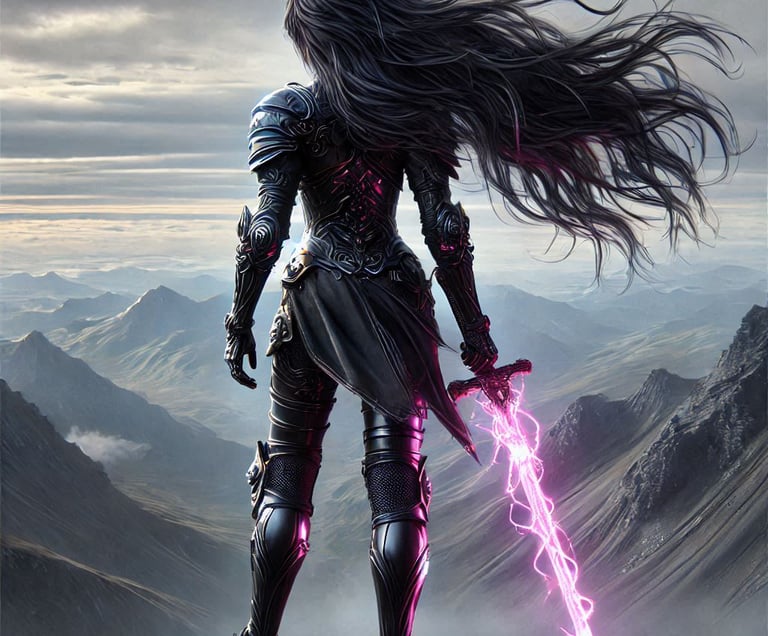

The Harmonya Chronicles Clubs!
Which warrior are you?
Join our warriors in their epic adventures today!
© 2023. All rights reserved.

